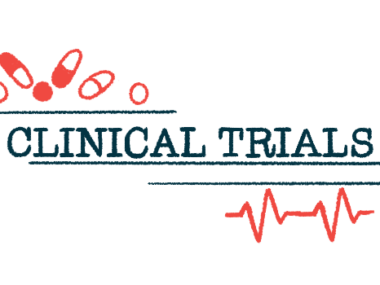CDA Foundation grants aim to help US hepatitis patients find doctors
Total $1.8M awarded to 11 US organizations aiding hepatitis B, C patients
Written by |

In its efforts to connect diagnosed but untreated hepatitis B or C patients with physicians, the Center for Disease Analysis (CDA) Foundation has awarded $1.8 million to 11 U.S. organizations in a second round of grant funding.
These grants aim to help patients in finding doctors who can treat their hepatitis infections and provide care. The funding will help the Colorado-based CDA Foundation, which works with more than 110 countries and 26 U.S. states, to advance its goal of eliminating viral hepatitis by 2030 — a goal shared by the World Health Organization.
Sponsored by an $8 million grant from Gilead Sciences, a California-based company that markets hepatitis therapies, the funding comes from the nonprofit’s Relink grant program, which, according to its website, seeks to “reengage infected [individuals] who were diagnosed but lost to follow up.” The CDA Foundation has plans to distribute two additional rounds of Relink grants by 2025.
“Hepatitis B and C infections are now the leading cause of death globally among all infectious diseases, and we have all the tools to eliminate these infections in the United States,” Homie Razavi, PhD, the CDA Foundation’s founder and managing director, said in a foundation press release.
“Loss of diagnosed but untreated patients is a major public health barrier in the U.S. to achieving the viral hepatitis elimination targets,” Razavi added.
CDA Foundation grant round to focus on ‘general and marginalized populations’
Although Relink programs have successfully reconnected people infected with hepatitis B or C with doctors, challenges remain. These include the identification of infected people via analyses of available medical records, successfully reaching out to them, and managing barriers to healthcare, both personal and institutional.
Round two funding will build on the successes and lessons learned in the first round, in which $2.1 million was granted to 14 U.S. organizations. These comprised five nonprofits, two state health agencies, and seven healthcare institutions.
After reviewing 25 applications this time, the second round of funding was distributed among nine healthcare institutions, one nonprofit, and one state health agency.
“Our second round of grantees will work with general and marginalized populations to link an estimated 5,400 diagnosed but untreated HCV [hepatitis C virus] and HBV [hepatitis B virus] infected individuals back into physicians’ care,” Razavi said.
All supported programs will continue to implement evidence-based methods and use effective interventions and data collection models while promoting the sharing of data and resources.
Hepatitis B and hepatitis C are two types of viral hepatitis, in which a virus infects cells in the liver, resulting in an inflammatory immune response. Both HBV and HCV are spread via blood or other bodily fluids, such as via sexual transmission, through the sharing of needles, or from pregnant women to their babies.
While many people will rapidly eliminate the virus from the body, others will develop chronic hepatitis and may need antiviral treatments. Untreated chronic hepatitis can lead to permanent liver scarring, known as cirrhosis, liver failure, and liver cancer.
Despite available oral treatments that can cure or reduce the disease’s severity in most infected people, many individuals with hepatitis remain untreated.
Iowa health department will use funding to end epidemic in state
Indeed, a U.S. study by the Centers for Disease Control and Prevention previously showed that more than 65% of people infected with HCV in 2019 or 2020 did not start treatment within one year of diagnosis despite having continuous insurance coverage.
In support of the CDA Foundation’s efforts, an analysis by researchers at Mount Sinai’s Icahn School of Medicine, in New York, found that reaching out to people diagnosed with hepatitis C, but untreated, resulted in a 31% linkage to healthcare.
One second-round grant recipient is the Iowa Department of Health and Human Services (HHS), which is dealing with an HCV epidemic in the state. The state health agency plans to use the funds to recruit a specialist in medical re-engagement.
“The person in this role will work to connect individuals to treatment in a variety of settings throughout Iowa HHS’s existing partnerships,” said Cody Shafer-Fritz, lead prevention services coordinator at the HHS, who noted that “treatment is a core strategy of our efforts to end the HCV epidemic in Iowa.
“We look forward to increasing our capacity to support the health and well-being of Iowans impacted by HCV,” Shafer-Fritz added.
Treatment is a core strategy of our efforts to end the HCV [hepatitus C virus] epidemic in Iowa. … We look forward to increasing our capacity to support the health and well-being of Iowans impacted by HCV.
Submission of applications for the third round of funding will open this month, with proposals from state health agencies given priority. Organizations in eight U.S. states, as well as Puerto Rico and Washington, D.C., are not eligible for Relink grants due to preferential prescription agreements, the foundation noted. Those states are Louisiana, Michigan, Minnesota, Missouri, Montana, Oklahoma, Texas, and Washington.
“We are grateful for all 25 applicants who took the time to submit a grant and will work with the organizations who were not funded to update their proposals for the next round of funding,” Razavi said.
Gilead will not influence the design, implementation, or evaluation of proposals, the nonprofit noted. Also, diagnosed patients can receive any treatment recommended by their doctor.




